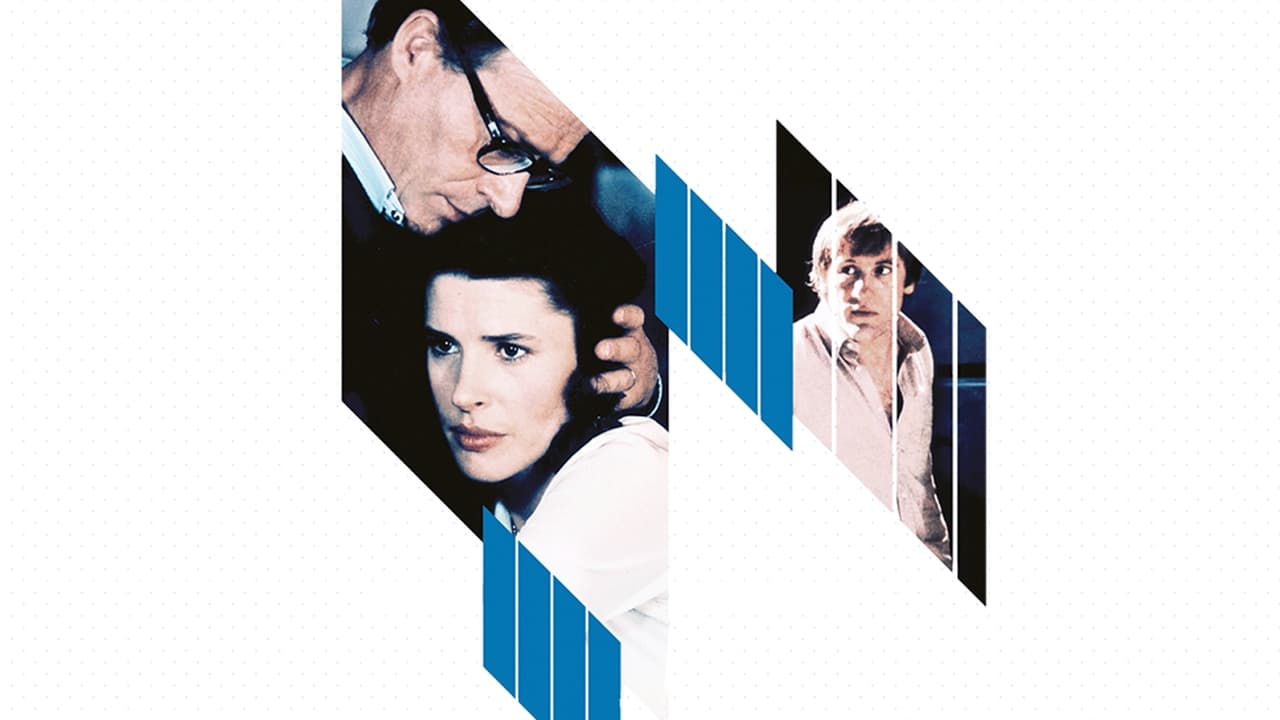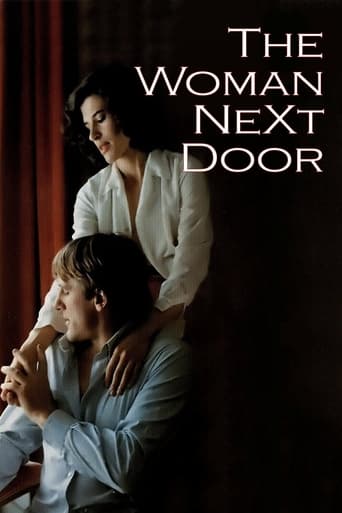

Like Jules and Jim of nearly twenty years before, this movie presents us with a woman who is larger than life, who makes art out life, who is mesmerising, mystifying, irresistible, enigmatic--and a tremendous pain in the bum. Or so the verdict could rest if this femme were not literally fatale. Like a man who abandons every woman after getting her into bed, the heroine of both movies thrives on conquest and domination. But once she has won the man, then subdued him, she is bored and cannot enjoy what she has gained. Both women, equating happiness with emptiness (because it would reveal the emptiness within them?), would rather destroy than do nothing, even if it means destroying what they hold dear. The sense of power, the thrill they get from getting attention and from shocking people are what they thrive on. Revered as goddesses of love, they are really goddesses of death.I suppose this makes me sound like a drab, insensitive killjoy--and for a long time I wouldn't have expressed this opinion for fear of being thought so. But isn't it the obvious interpretation of the obvious facts? The favourable opinion of these women is based not on facts but on an immature dream (on the part of men who idolise such a woman and women who want to be like her), a dream of running wild, being utterly selfish, and never having to face any come-uppance. Above all, not having to deal with real life (ie, be boring). Can one imagine the husband in this movie, any more than the one in Jules and Jim, sitting down for a discussion with the wife about their budget, or complaining about her housekeeping?Obviously a fantasy so long maintained means a great deal to Truffaut, who was as infatuated with Ardant as he was with Moreau. But it is a shame that his film-making is so beautiful and so seductive, especially in the earlier film, that he presents so persuasively, to young filmgoers, the idea that capriciousness, exhibitionism, and what we have learned to call narcissism make women fascinating and desirable. Truffaut's fantasy is not one of being a lover but of being a fan, of worshiping a woman who is too far above him for understanding or intimacy. If your ideal woman is someone it is impossible to be close to or to affect, it rather draws attention away from the fact that you are not good at doing that with anybody. Just because the guy is French doesn't mean he knows all about love and passion and women. He seems more like someone concocting a big love-dream to justify his being a wimp.
... View MoreI really wanted to like this one more, it's the kind of domestic drama the French usually do well, but it just didn't work for me. Truffaut takes material grounded in realism and tries to impose a fable-like atmosphere, and ends up in an awkward middle ground. Just one example, he has Fanny Ardant faint at least twice in the movie. Really? Is this 1981 or 1921? I really didn't take to Ardant's performance, though I suspect the script shares the blame for that; she comes off less as a real person than a male construct.The story--Ardant and her husband move next door to Gerard Depardieu and his wife, the two having had an intense affair a decade earlier--is well told and holds interest, but the details are often unconvincing and there's an off-putting tone to the whole affair. For instance, Ardant and Depardieu act frantic about their secret right from the start--but why? Both were single when they were previously a couple, so there would be no scandal in being honest with their spouses, yet both insist on saying nothing. Later in the film, when the truth is exposed, and by this time the two have become adulterous lovers in the present, the respective spouses are maddeningly reasonable about the whole thing. Yeah yeah, they're French, but really, if betrayed spouses always reacted this mildly, people wouldn't feel the need to hide adultery in the first place.This vague inauthentic vibe persists right to the melodramatic ending, which also comes off as oddly emotionally flat.
... View MoreTruffaut knows who to tell a story on the screen, this is not a new story, I have seen one like this before in une femme francaise. But a big movie funs can feel better in this one, the way the scenes fade in and fade out,the deep-focus images, the music and the camera motions. I know many people don't like subtitled pictures, but this one is really worth to watch.
... View MoreVery good movie with excellent performances from Gerard Depardieu and Fanny Ardant. The emotions and performances are outstanding. If you have ever felt a strong love that borders on the irrational, then you may identify with this film. There are some small flaws of coincidences in the story. I found the last 20 minutes quite disturbing, and wish the writers found a different one. It seems to imply that real love must have a tragic ending. It is sort of an 19th Century "romantic" ending. Perhaps, that's what they were shooting for in the modern cotext of France in the 1980's. But nonetheless one of Truffaut's better films. What do you think?
... View More